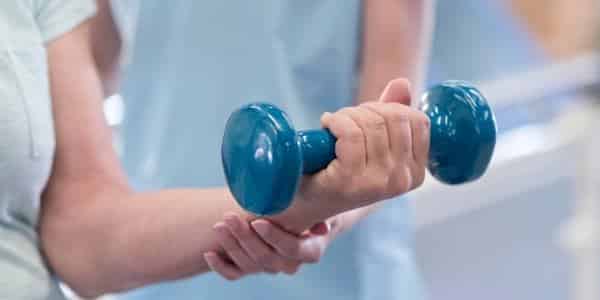Role of Physiotherapist in Aged Care
In aged care, physiotherapy might be one of the most important jobs, and physiotherapists are crucial for seniors and aged care. Physiotherapists perform many tasks including easing any pain that the participant might have, rehabilitation, and group exercise classes. Everything is based on scientific research and physiotherapists make sure to look after the person’s health and wellbeing, so they take the participants’ personal life into account as well. Not just for aged care, but you can benefit from physiotherapy at any age. They can help with any kind of back pain, sudden injuries, or long-term problems like asthma.

Find out more...
Fill in the form below and one of our consultants will be in touch with you regarding our services.
Types of Physiotherapies
There are a lot of types of physiotherapy for old age. Each of these physiotherapies are funded by the NDIS, and you can always contact us if you need more information. The types of physiotherapies are as follows.
Pain Management
It is estimated that 80% of seniors in aged care facilities suffer from chronic pain, so pain management is a really big part of physiotherapy for old age. It is really important that these seniors are diagnosed properly and receive the best treatment possible for their wellbeing. In Australia, pain management is with the 4A – 4B complex pain management program. The 4B part requires 20-minute massages 4 times a week, on the other hand, the 4A program is just once per week. It is hypothesised that these programs will be changed in the near future.
Rehabilitation
Since fall-related injuries like fractures are really common in aged care, exercise based rehabilitation is also really quite common. A physiotherapist will work on the injured part and will try to fix the problem as soon as possible.
Manual Handling
Physiotherapists are skilled at the implementation of manual handling programs within an aged care facility or your personal home.
Group Exercise Classes
Another frequent function of a therapist is to instruct exercise classes. It’s common to see physiotherapists teaching balance in a group setting.

Disability Physiotherapy
It can be a common misconception that physiotherapy is more connected to aged care or short term injuries. However, physiotherapy is really suited for people with disabilities, who want to achieve their independence. Traditionally physiotherapists help disabled people to overcome their mobility challenges, so they can independently participate in activities they want. The NDIS also brings new opportunities for people with non-physical disabilities like autism. Physiotherapists help these people with cognitive or psychological people by, for example, teaching them how to ride a bike. These new skills can help them with their social life as well.
Paediatric Physiotherapy
Paediatric physiotherapists are physiotherapists for children and adolescents. Their aim is to improve a child’s movement through movement training, exercise, stretching, strengthening, adapted equipment and motor learning. Since the anatomy of a child and an adult is different, paediatric physiotherapists are more efficient at their jobs when working with younger people. Paediatric physiotherapists also offer early interventions who may have neurological or developmental delays.

Home Care Physiotherapy Service
If needed, your physiotherapist can come to your house instead of an aged care facility. You can receive the exact same therapy at home as well. Your physiotherapist, based on your condition, diagnoses, customisesand formulates a treatment plan based on the situation the participant is in.
Physiotherapy Post Operative Care
For the patients that are undergoing orthopaedic surgery, the post-operative physiotherapy that they are following will be critical to the result they achieve. Your physiotherapist is familiar with this and they are able to adjust your program based on your specific needs. There are three main phases in post-operative physiotherapy: The early recovery phase, the strength and the range of motion phase and lastly the functional restoration phase.
Early Recovery Phase
This phase begins as soon as your surgery is over and this phase carries on until your tissues are healed and the pain associated with the surgery has mostly dissipated.
Physiotherapy in the Strength and Range of Motion Phase
Once you have reached a few milestones after your surgery and your pain has reduced, your physiotherapy program will be more focused on normalising your range of motion, mechanics and the overall strength of your body.
Functional Restoration Phase
After most of your strength has returned, you will start doing more day to day complex exercises to move into the functional restoration phase. Your program will be based on what you want to achieve.

Physiotherapy Service in Sydney
All in all, our physiotherapy services are here to help you live with the disability or an injury that you may be suffering from. If you have any suspicion whether anyone close to you might need extra provision, feel free to contact us. You can also ask any question you might need answered about our services. As the team of ADACSS, we are here to help anyone that might need help in Sydney. Get in touch by calling us at 0292327055, send us an email or book online.
Why choose ADACSS?

Free consultation
We will meet with you to offer free advice and support without obligation. We pride ourselves on turning things around quickly.

Individual support package
Everyone's needs and wants are different, therefore we listen to you and make a tailored plan based on your requirements.

Ongoing support
Once everything has been agreed and services commence, we will discuss and feedback on changes if needed.


